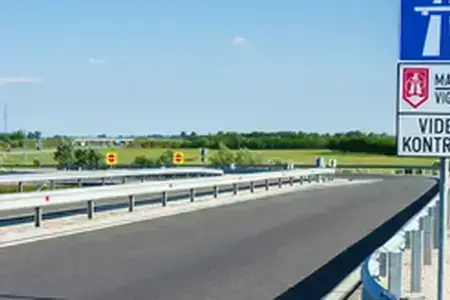Highways, also known as expressways, form an essential part of domestic and global automotive transportation. These high-quality roads carry significant advantages and disadvantages, and it is important to understand them before setting off on a journey.
The advantages of highways include their high-quality pavement and permissive speed limits that enable fast and efficient travel. This way, we can reach our destination quicker.
Traveling on expressways involves less stress and provides a more comfortable travel experience. Fewer curves and road defects allow for a smoother journey.
Higher levels of safety can be achieved on highways through designs that meet modern standards and regular maintenance.
Perhaps one of the biggest disadvantages of highways is that purchasing an e-vignette is unavoidable. In any country, using the highways requires paying some fees, which can mean additional costs for motorists. Prices and validity periods may vary.
While traveling on highways, we may encounter agricultural vehicles, which travel at lower speeds and can sometimes cause congestion.
Traveling on highways can be faster, but the time spent on them can vary based on the route and distance involved.
Purchasing an e-vignette is an important part of using highways in Hungary. The price and type of e-vignette depend on how long and with what type of vehicle and area we intend to use the highways. For example, an annual national e-vignette must be purchased if we regularly use all the highways in the country with a personal car, while county e-vignettes can be chosen if we only plan to travel in one county.
In conclusion, expressways in Hungary offer clear advantages when we want to ensure efficient, comfortable, and safe travel. However, it's worth planning carefully and considering the necessity of e-vignette purchases and county vignettes to make the most of our journey. Although there are some disadvantages, expressways remain the most popular choice for longer-distance travel in Hungary.









